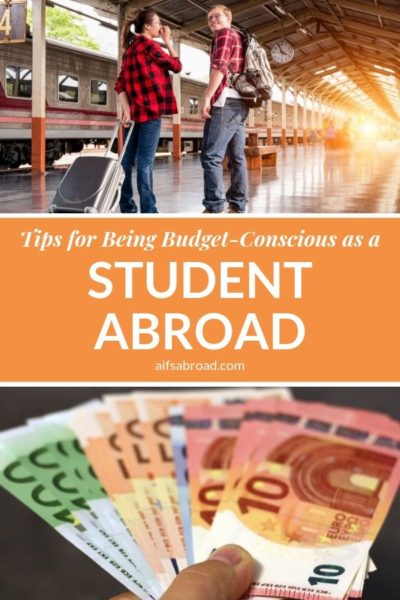When considering studying abroad in Europe, a major convincing factor for students is the opportunity to travel. While travel is very exciting, it can also be financially intimidating for those on a study abroad budget.
However, by using the right tools, resources, and tricks, travel is more feasible and less stressful on a student budget. To help out prospective study abroad students or travelers, I’ve listed a few tricks-of-the-trade that I’ve learned throughout my last three years’ experience when traveling in Europe.
1. Budgeting
Something that students often ask before their semesters abroad is, “How much money should I save for traveling?” Ultimately, there is no finite answer. Saving and spending all depends on the individual, as well as the places that they travel and how they plan to get there.
For example, if you plan to fly to big, more expensive cities like London, Paris, and Copenhagen during your travels, you’ll need to save more than someone who plans to take a bus to more inexpensive destinations like places in Poland, Hungary, or the Czech Republic. Depending on how expensive a city was and how luxuriously I decided to live while there, a weekend trip during my fall semester abroad typically cost, once converted back to USD, between $150 and $400.
- When determining how much to save, ask yourself:
- How many trips do I want to take?
- How much do I want to spend on transportation or accommodation?
- How many times do I want to eat out?
- For the museums I want to visit: do they have an entrance fee?
- What activities or tours do I want to do and will those cost money?
- Do the places I’m visiting have STUDENT DISCOUNTS?
By the way, student Discounts are incredible. ALWAYS BRING YOUR STUDENT ID WITH YOU and ask if there’s a student discount at stores and museums. It may be tedious to ask, but it could save you some cash.
Depending on your answers to these questions and how much you research, it is easier to establish an estimate on how much money you should save.
Then, based on how much you plan to save for travel, add on some extra cash as an emergency fund. Typically, based on the total amount of money I’ve saved for a trip, I set aside 15-20% of the savings for worst-case-scenario emergencies, such as if I miss a train, get pickpocketed, or ruin my favorite pair of walking shoes. If you manage to escape your travels emergency-free, then you return home with a bit of extra cash in your account, which is never a bad thing.
For keeping track of your spending and study abroad budget, make a spreadsheet. Online spreadsheets, like Google Sheets, are awesome because you can access them on your computer, tablet, or smartphone and update them on-the-go. On your spreadsheet, include your overall travel or study abroad budget, your emergency fund, and how many trips you want to take and types of spending you’ll do on each. Set up sum equations on the sheet so that it can automatically update itself on how much you’ve spent and how much you have left. For a visual example, I’ve set up a template budgeting spreadsheet made with Google Sheets below.
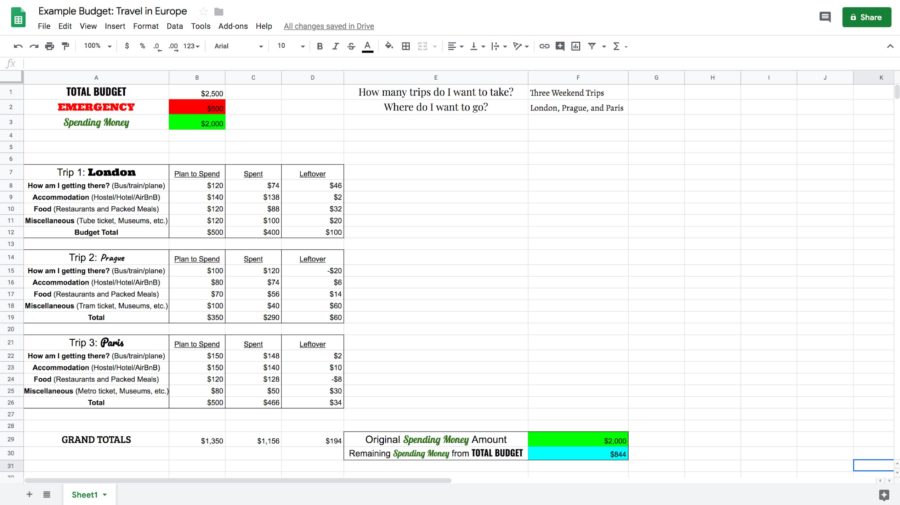
2. Online Resources
In Europe and most parts of the world, the most expensive parts of a trip can be transportation, accommodation, and food. However, with the online resources and tips listed below, budgeting for these costs is much easier and guarantees that – in my opinion – you’re getting the best bang-for-your-buck.
Omio
When traveling between cities in Europe, deciding which method of transportation to take can be very time consuming. But with Omio (formerly GoEuro), the task of comparing trains, buses, and airplanes is simple.
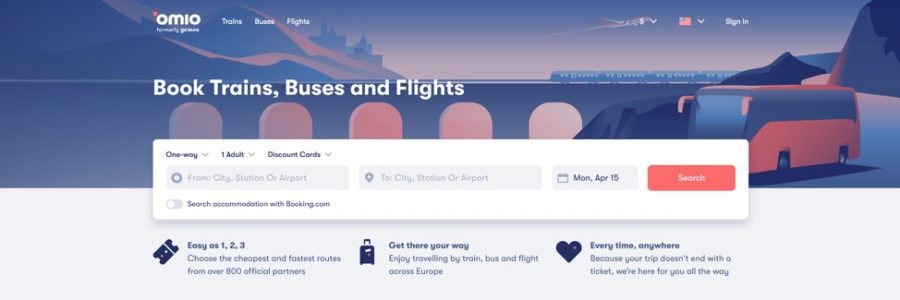
All you have to do is enter into the search bar is your departure city, where you are heading, and what dates you’d like to go. The rest is easy. Omio presents which methods of transportation are cheapest and fastest, allowing you to know you’re making the right decision when planning your trip.
HostelWorld.com and Hostels.com
In terms of accommodation, the most frequently used by students on a budget are hostels. In hostels, layouts are often very similar to dorms, with most rooms having shared bedrooms, bathrooms, and communal spaces. When booking a room, you can take your preferences into account by choosing how many roommates, if you want a single-gender or co-ed room, and what type of bathroom access (en-suite v. communal) you’d like to have. Similar to a hotel, the facilities are cleaned daily.
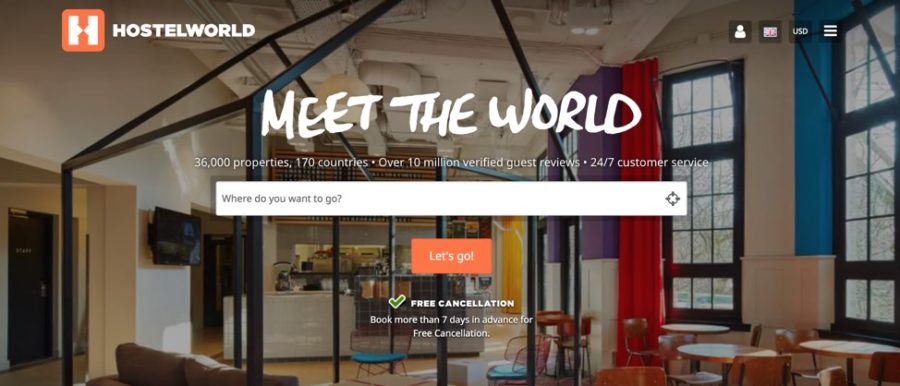
While hostels can be less luxurious than a typical hotels, oftentimes they are the best option for students who are looking to spend less and experience more. Because of the communal aspect, a room in a hostel will be significantly less expensive than a hotel and will serve as a great opportunity to meet new people that you otherwise may not have the chance to interact with.
Also, since hostels know that their main patrons are young people on a budget, their receptionists often have great resources on inexpensive activities in the local area, such as free or discounted city tours and information on local museums or restaurants. Again, hostels are a great way to make new friends from all over the world while not costing you your entire study abroad budget.
If the communal aspects of hostels don’t sound like something that is up-your-alley, other options for accommodations include hotels and Airbnb.
Agoda
A great search tool that I would recommend for finding an inexpensive, traditional hotel room is Agoda. I’ve used it while searching for and booking hotels in Italy, the United Kingdom, and the United States and have never been disappointed with the outcome. However, as most of the hotels listed are known for being budget-friendly, be sure to read reviews before booking.
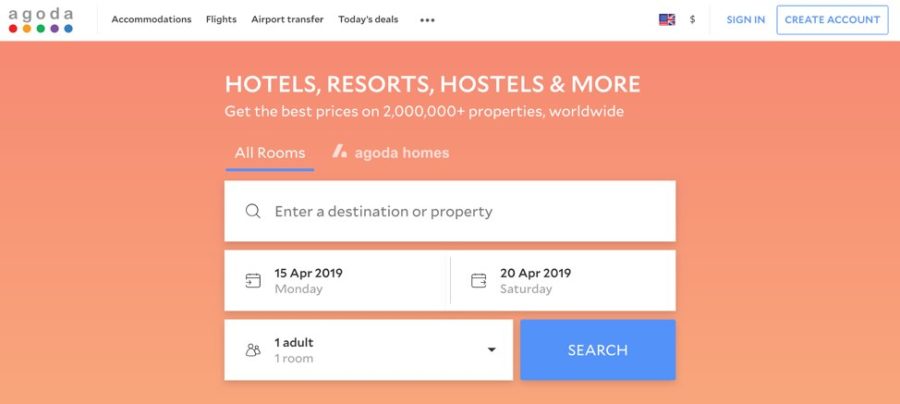
Airbnb
When traveling with a group of friends, looking for an accommodation that will host you all without breaking the bank can be a difficult task. In this situation, I would recommend Airbnb.
By using Airbnb, you can find an accommodation that will sleep everyone and not cost an extraordinary amount. The beauty of traveling in a group means that the cost of accommodation can be divided up between everyone, meaning you can stay somewhere you may have not been able to afford on your own.
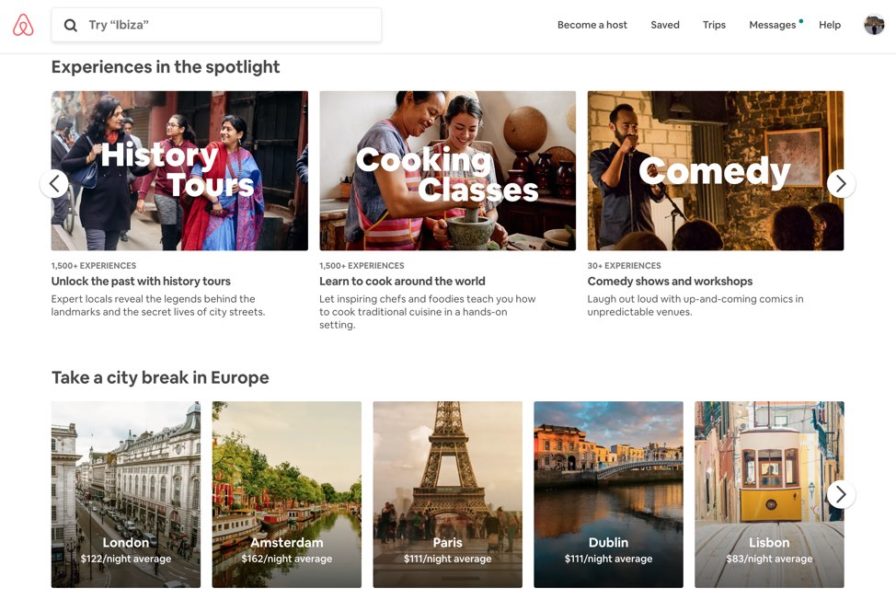
Additionally, Airbnb is a great tool for finding activities to do in the local area. Through their “Experiences” feature, you can search through tours, cooking classes, art classes, and outdoor activities offered by locals to have a truly memorable experience in the city you’re visiting.
Smart Trip and Bus2Alps
If planning, booking, and/or sightseeing without a tour guide seems intimidating, a great resource for traveling students is booking a guided trip. In Europe, two great trip providers are Smart Trip and Bus2Alps as they are budget-friendly and include accommodation, tour guides, activities, and some meals.

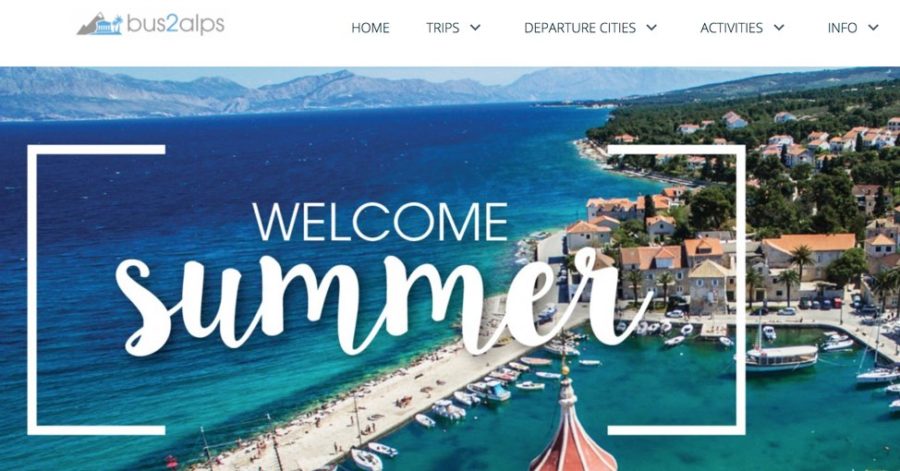
Like I said, if planning and traveling without a helping hand seems scary or intimidating, student tour providers can be a great resource for easing you into the groove of traveling while still saving money and meeting new people.
Pro-tip: Take advantage of those AIFS program-led excursions included in your program fees to maximize what you get to see while you’re abroad and to stretch your study abroad budget!
Food Tips
When traveling, a cost that will sneak up on you and pile up is paying for food. However, by budgeting when you plan to eat out and how much you plan to spend, you can stay ahead of this cost and go home with what you expected rather than less.
When planning an itinerary, factor into the schedule when you’d like to eat out or go for a drink. For example, if on a weekend trip, you can plan to eat out for one of each meal: once for breakfast, once for lunch, and once for dinner. Depending on how the food scene in a city is, you can then establish a budget for how much, in total, you plan on eating out. Then, take that amount of cash out of the ATM, hide it in different places on you or in your bag to avoid a potential catastrophe of losing it, and tell yourself: “This is all the money I have to spend on food and drinks.” Whatever cash you have left over, use that to treat yourself, put it back into your savings account, or roll it over to use on your next trip.
When considering hotels, hostels, and Airbnb, a major factor to consider is whether or not they serve breakfast. If so, that instantly eliminates a cost that would’ve added to your overall spending. An even better perk is if the accommodation has a communal kitchen where you can bring in some groceries and cook yourself a meal instead of eating out. Sticking a frozen pizza in the oven is usually cheaper than a meal at a sit-down restaurant.
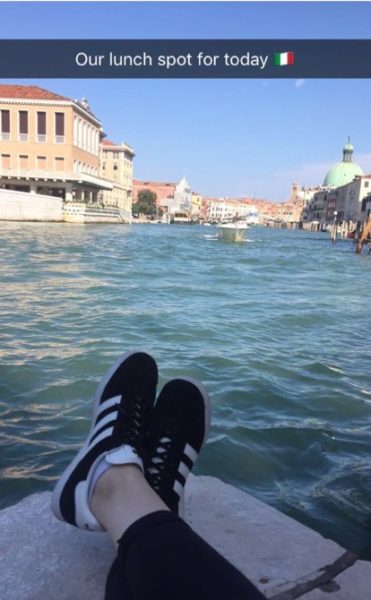
For the meals that you don’t plan on eating at a restaurant, cafe, or your accommodation, my major money saving tip I cannot stress enough is this: PACK YOUR OWN FOOD. Whenever I go on weekend trips, I always bring a shopping bag (if allowed on the transportation service) with a small loaf of bread, a jar or two of some sort of spread (peanut butter, nutella, jam, etc.), a butter knife, some sandwich bags, a pack of wet wipes, a bag of chips, a bag of candy, and a few clementines, apples, or bananas. I also always bring my reusable water bottle.
By bringing this food with me, I always had some food on hand in order to avoid getting hungry and deciding to splurge on whatever restaurant I came across first. On the days that I packed a lunch from the supplies I brought, finding a beautiful spot to sit in a city is easier than finding a restaurant with a view. As long as the area you’re sitting in to eat your home-packed meal doesn’t prohibit food, you’re good as gold to take a break from your day’s activities and just chow down on a nice PB&J and watch the city go by, enjoying the fact that you know you’ve saved yourself some pocket change that can be spent on your next adventure.
This post was contributed by Jane Greis, an AIFS Alumni Ambassador from the Towson University who spent a semester studying abroad with AIFS in Salzburg, Austria.
